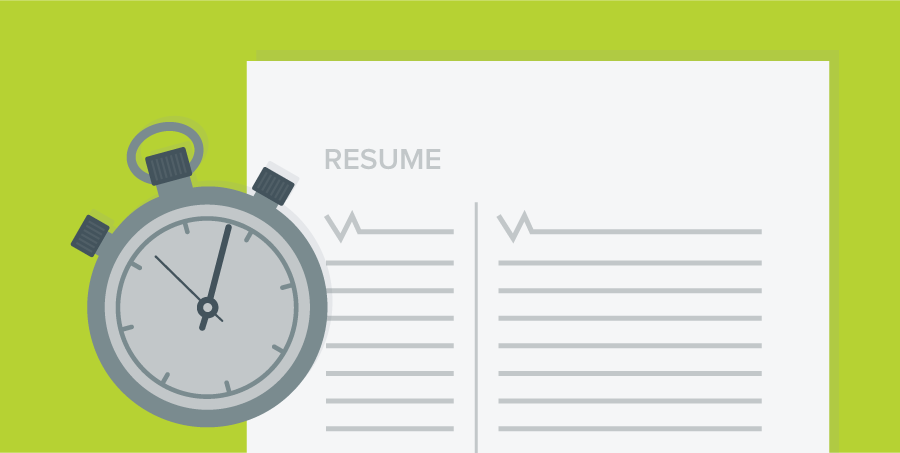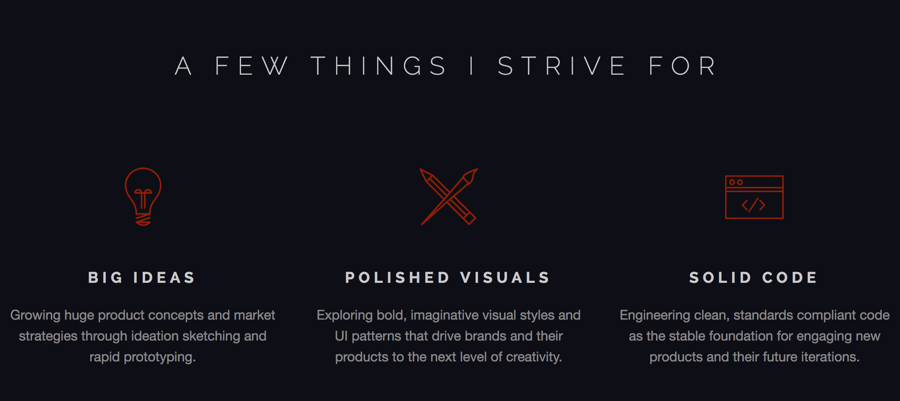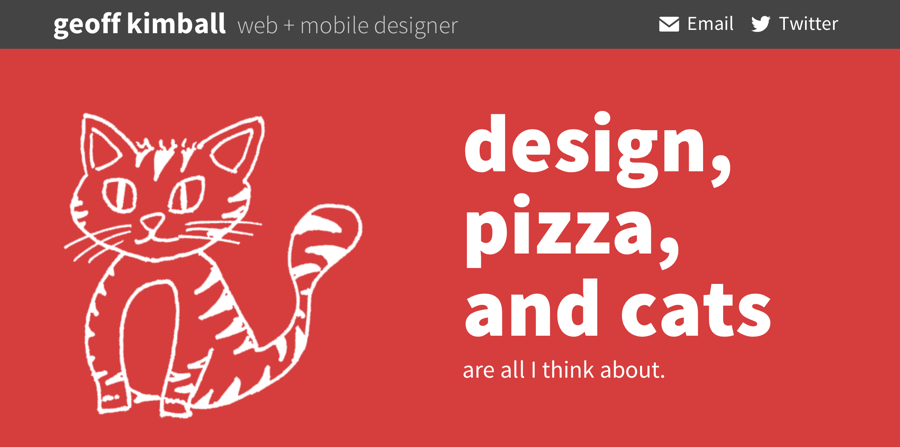You're a designer ready for the next big thing in your life. Maybe you just finished school or a boutique training course, or maybe you're ready to move on to a new adventure. Whatever your reason you're fresh on the market and you're ready to crush it! That's all well and good, potential employers like people who are excited. The problem is that excitement alone doesn't always get you very far.
We've learned something from 16 years of hiring designers. And we have a few tips for you to amaze a person looking to hire their next designer. After all, you're just one drop in a sea of drops. You have to stand out! Let's take a look at a few ways you can do that and what we tend to look for in a candidate.
Wow Them at the Start
Your email/cover letter has to be unique for every place you're applying to. It doesn't have to be amazingly complicated. The reality is, less can be more. We have a great formula for your first steps to get noticed:
Catchy Subject Line
This screams "LOOK AT ME!" But don't be obnoxious. Why? Because you don't want to appear to be too arrogant. HR people are privy to physiological cues, stating "I am the Droid You're Looking For" may not get you the result you want. Remember you want to join the team, not necessarily the other way around. Be humble.
Let's take a look at an example from Brandon, who knew us for a long time, coming to our events and using our stuff. He was hired as a designer sometime back and is now one of our design leads. When Brandon applied for the designer position, he sent us a letter that caught our eye. His catchy subject line: "Let's make the web simple."
The subject line is specific and gives us a sense of what Brandon hopes to accomplish with us. He followed that up with a short introduction: "Hi, I'm Brandon. I'm looking for a career as a designer at ZURB."
Your Top Three Skills
What are you good at? Is it your ability to code? Are you awesome at coming up with lots and lots of ideas? What can you bring to the team you're trying to join? Whether it be an actual skill requested in the job post or that little something extra, let us know. Be focused, don't make blanket statements. If you're 'Great at talking to people,' what does that even mean? Teams will appreciate that you're an awesome conversationalist at lunch but won't be too enthused with you if you're not comfortable talking to customers.
Back to our example. Brandon outlined his top three skills right after his introduction, and highlighted things we were looking for:
- "I come Foundation ready" — It was important to know that he was familiar with our responsive framework, Foundation, and had used it on a variety of projects.
- "I work for humans" — This was important to know because our motto is "Design for People," and we look for people who are like-minded.
- "People skillz that make people feelz" — In this section, Brandon lets us know his skills at working with others as well as representing his work with clients.
Your Best Teamwork Tactic
The way this question is answered gives us HR Wizards some insight on how you solve problems and the role you take in a group. Depending on how this question is answered we figure out if you take charge in a group, go with the flow and follow along, consider other teammates suggestions to solve problems or are capable of solving the problem on your own and guiding the group to that conclusion. And there are no 'wrong answers' here.
Back to Brandon. He stated his teamwork tactic as one thing: "Yes, and — " Which is an improv technique that helps focus build on ideas, very important in collaborative work.
Why Do You Want to Work for X
OK, Jeopardy question. Did you do your homework? This is the part of the cover letter that isn't necessarily all about you. It's telling the story of the company you want to work for and how you fit into their story. It's the difference between doing a book report after reading the whole book or just reading the cover. You won't fool anyone by repurposing some of the companies catch phrases/mantras and stringing them together in paragraph. Also, there's no love for convenience either. Companies don't get excited that they are within walking distance of your house. We want to see your value, not how we can make your commute more enjoyable.
One last look at Brandon's letter. Here's how he ends it:
You guys have taken the process of web design and turned it into product design. I'm looking forward to prototyping ideas, testing them, and then improving upon them. Simply put, ZURB doesn't just make the lives of consumers easier, but the lives of designers and developers easier as well. I'd love to be a part of it.
And that's what got him his job. :)
Impress With Your Personality and Your Work Too
So your catchy subject line and email got you noticed! Awesome. Now it's your time to shine. Your resume will most likely be viewed next and you have less then 10 seconds to impress. Yep, we're fast. Because we know what we're looking for in a resume. And if it doesn't have the right things, we put it aside.

The Resume
Your resume should be readable. Let us say that again: your resume must be readable. Use visual hierarchy and keep in mind you have less then 10 seconds. If your resume isn't easily scannable that may be the end of the road for you. So what is it that we're looking for? Let us show you.
We're looking for:
- Your Personal Info — Your name, address, phone number, email address and portfolio link.
- Employment History — Your most recent or current employer and the dates and previous employment.
- Education or Skills — Depending on the company, they'll look at your highest level of education, especially if it's listed in the job post or your skills.
Avoid visual styling or pictures, save it for your portfolio. You want to avoid any chance that your resume will be discarded. And make sure you provide the information we're looking for and ask for in our job listing. For example, people have become reluctant to provide phone numbers on their resumes. The reality is, if we can't easily call you, we're not going to. Fact.
Once we've scanned your resume for all the vitals, we'll actually digest the contents. The truth is: how you word things is really important, and honesty is key. Again, no blanket statements. If you 'oversaw the launch of a new product,' briefly explain what that entailed. Give the recruiter something they'll want to ask you more about during a phone interview. We love that stuff.
Don't be negative in your tone either. Don't say things like you "dealt with customers." That's negative. Keep things positive, such as you "assisted customers do x."
The Portfolio
Finally, your portfolio. As a designer, you need a portfolio and you should build it yourself. This is where we want to get a sense of who you are and what you're about. I want to be able to work with you and be excited about the things you get excited about. Your portfolio puts you as well as your work on display. And if you don't have a lot of work to show, put some extra work in and create something. You can't hide behind an NDA because there is a wealth of talent here (in Silicon Valley) and we can be selective.
Alex, who got a job at ZURB as a designer, lists his skills in a nice clear way on his portfolio site.
Here's what we're looking for in a portfolio site.
- Can you build on opportunity? Do you seek out how to solve problems, do you try something new and take risks? We want to know what you've tried to do. Show us a project that was hard for you. Tell us what you did to solve it.
- Can you stay open-minded? Are you open to trying new things? Can tackle a problem that you don't have the answer for?
- Can you fail? Remember that thing you tried. Did it work out? We want to know if it didn't and want to know what you did differently. Tell us how something didn't work. Show it to us, then show me what you changed and tell me what you learned.
- Can you be a coach? Have you ever worked in a group? Like a hackathon what was your role? How did you contribute?
Geoff, who also got a job here as a designer, gives us site a little personality while telling us who he is and what he does on his site.
Your portfolio tells the world who you are. Please don't just show us the pretty end results to projects with three-sentence blurbs about the tools you used. We want the nitty gritty. We want to hear about the struggle. Give us your story. Please don't just link to your social networks for us to get a sense of who you are. Don't just tell us you have a passion for design. Show us.
Give Yourself the Edge
Interview processes are hard, and can feel like gauntlets. The best thing to do is to give yourself an edge on the competition and don't get discouraged if an opportunity doesn't pan out. Have a reason for applying, find a few things that get you genuinely excited about each potential employer and take notes. If you're ever asked 'Why do you want to work here?' Please don't ever say 'Why not?' and leave it at that. Now all you have to do is practice and it just so happens that we have a few opportunities available. And we look forward to learning more about you ;) .


